How to Keep Your Pet Safe Over the Holidays
A guide to making the holiday season paw-some for your fur fam.

A guide to making the holiday season paw-some for your fur fam.

For many, our pets are the heart and soul of the holiday season. But even the most wonderful time of the year could pose threats to your fur fam.
Picture this: Your curious cat, Mr. Whiskers, slyly nabbing a sprig of mistletoe. Before you know it, Mr. Whiskers is feeling under the weather, leading to an unexpected and costly trip to the vet during the holiday rush. That’s where pet insurance can come in handy.
Let’s get into the nitty gritty of how you can make winter festivities joyful and safe for your furry family members.
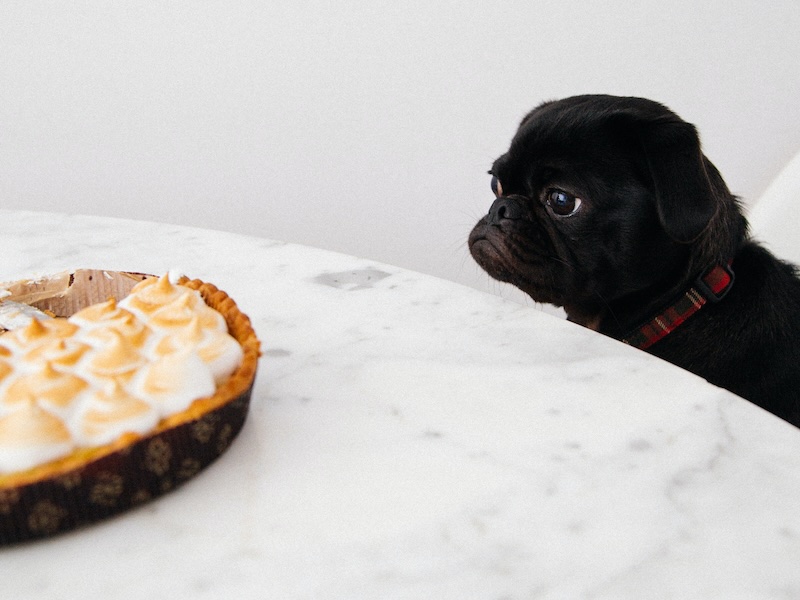
The holiday season is all about spending time with loved ones and enjoying special meals together. As the humans dig into their favorite dishes, your furry friend might be left wondering: What about me?
It can be tough to navigate safe food options for your pup during the hustle and bustle of a holiday meal.
It’s always important to have an eye on what your pup is eating—but even more so during holiday gatherings, when a bunch of tempting (but dangerous) foods are within reach.
Click below for a cheat sheet of festive foods that are dog-safe, as well as dangerous treats to keep out of reach during the holiday season.
Common in holiday treats and desserts, chocolate—especially dark or baking chocolate—is toxic to dogs.
Often found in fruitcakes or other desserts, these ingredients can cause kidney failure in dogs.
Can lead to anemia by damaging a dog’s red blood cells.
While not all mushrooms are toxic, some types can be poisonous and lead to serious health issues.
These can splinter and become hazardous; bones from dishes like turkey or chicken are especially risky.
Rich in fats, which can lead to pancreatitis in dogs, which can be acute and sometimes occur from just one serving of these foods.
Used in dishes like pumpkin pie and some holiday drinks (like pumpkin spice lattes), it can cause seizures and central nervous system issues in dogs.
Monitor how many salty foods your pup is scarfing. In large amounts, salt can cause excessive thirst and urination, and even sodium ion poisoning (aka Salt Toxicosis).
Even sneaking a couple sips from the makeshift bar at a holiday party can intoxicate pets, leading to vomiting, decreased coordination, and more severe symptoms.
If you ever suspect your dog has ingested something toxic, consult a veterinarian immediately or call the ASPCA Animal Poison Control Center: (888) 426-4435.
For the toxic food completists out there, check out this comprehensive chart that lays out the symptoms your dog might experience if they gobble down something they shouldn’t, and how much a trip to the vet could cost to treat them.
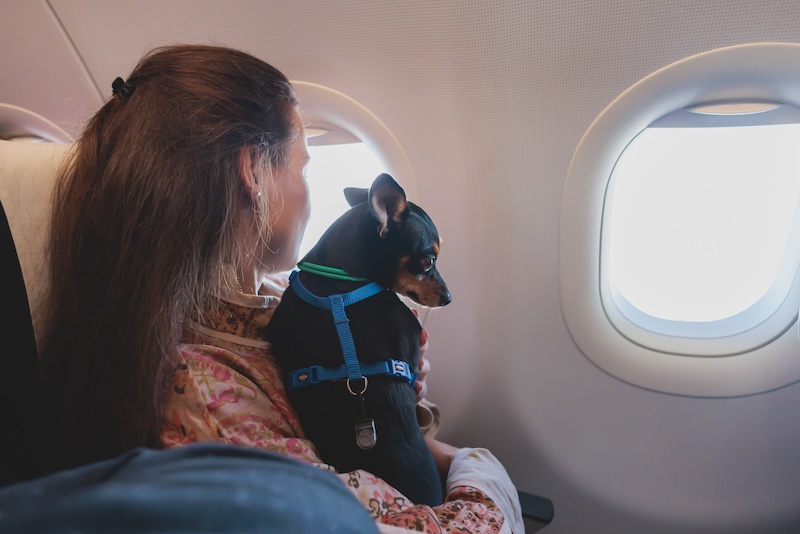
It can be tough to decide what to do with your pet over the holidays. Fly? Take an adorable roadtrip with your favorite backseat driver? Or leave your furry friend back home with a trusted pet boarding facility?
There are several factors to weigh for each option. Talk to your vet well in advance of your travel plans about potential solutions or medications to help your fur fam stay safe and comfortable during holiday travel.
Pros
Cons
Pros
Cons
Pros
Cons
Head to our travel safety guide for pet parents for additional resources on prepping your pet for a flight or long drive—which should start several months before your trip—plus an analysis of pet care options if you’re traveling without them.
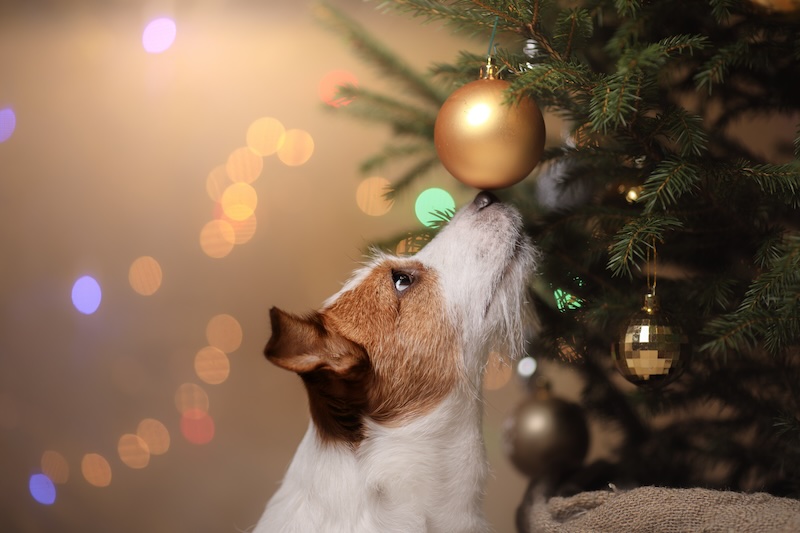
Our homes often glow with beautiful decorations during the festive season (sometimes even before Halloween, but this is a judgment-free zone).
To your pet, holiday decor can look like a toy or a tasty treat, but they can pose serious—and pricey—threats such as choking and intestinal blockage.
Here’s a list of common holiday adornments that can be hazards to dogs:
Keep potentially harmful decorations out of your pet’s reach and always supervise them around festive displays.
If you’re putting up a Christmas tree, secure it to prevent it from being knocked over, and use protective barriers or baby gates to keep your pup away from where pine needles may fall.

When your pet says they don’t want any presents this holiday season, you know they don’t really mean it.
But how can you choose a gift for your pet that lets them know they’re the good-est boy or girl in the world? Here are some factors to consider when shopping for your furry companion.
Prioritize non-toxic materials, and avoid small parts—like toys with squeakers, or clothes with buttons—that could be ingested. Keep in mind: Large toys can be just as dangerous if pieces can easily be bit off and eaten.
For pets that are heavy chewers, opt for more robust, durable toys. Even for the most gentle of players, look for heavy duty toys, like The Virtually Indestructible Ball.
Decide whether you want toys to engage with your pet, or ones they can use independently. For instance, if your Blue Heeler is hinting that they expect a tug-of-war toy, but you don’t want to be caught on the other end of the match, consider a design that’s meant for independent play, like the XiaZ Tug Toy.
Toys that stimulate the mind—like puzzle feeders—can offer pets several benefits, including:
Your pup might even enjoy a dog-friendly game of hide-and-seek with the Frisco Flying Saucer & Aliens Hide & Seek Puzzle Plush Squeaky Dog Toy.
Think of gifts that can also serve a purpose—like a new collar, portable water bowl, or winter coat. Sure a pair of doggles might just look like a fashion statement, but the right pair could also safeguard your pup’s eyes from UV rays, dust, and debris (win-win).
Consider items that can be personalized, adding a unique touch for your pet. You could even pay homage to your pet with a little personalized gift of your own—like a custom pet portrait bag by Susan Alexandra.
Looking for more gift inspo? Check out our pet gift guide, which includes carefully curated ideas like Meowijuana for your hipster cat, and matching sweater sets for the whole fur fam. Full disclosure: We aren’t partnered or sponsored by these brands, we just think they’re awesome.
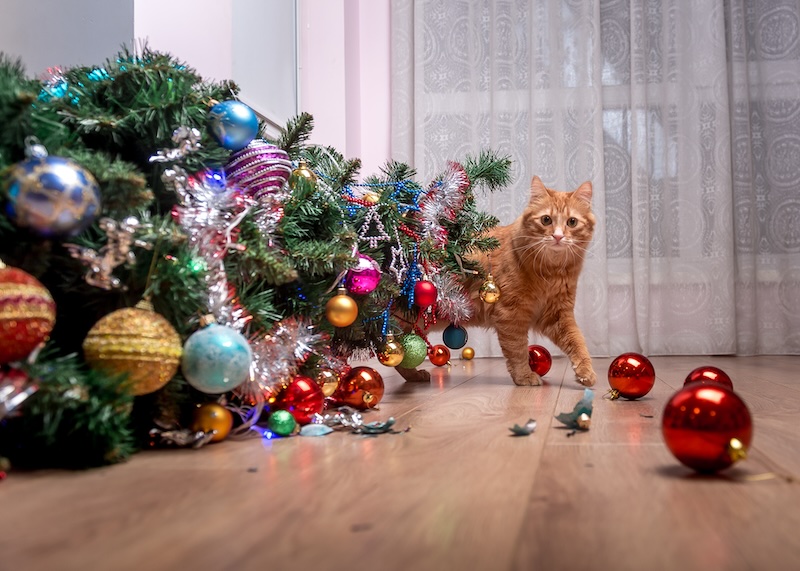
Hosting a holiday get together? Follow these tips to make sure your furry roommates still feel at home:
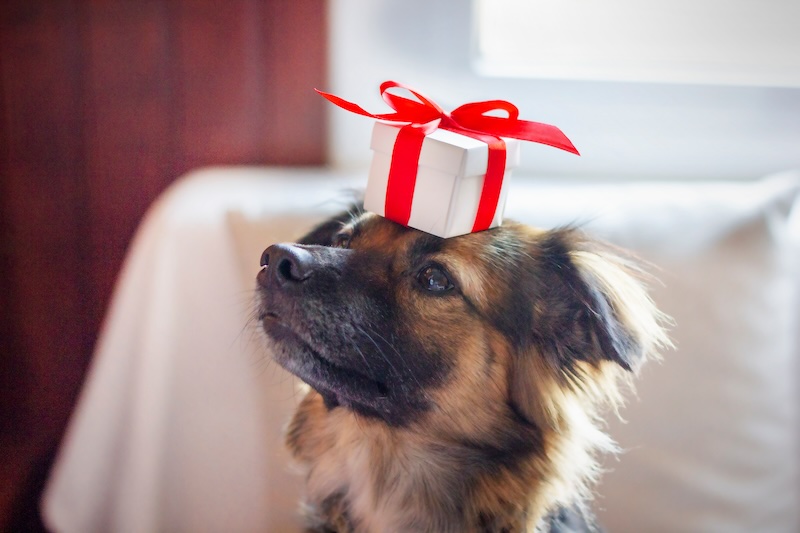
This giving season is your chance to spread your love of animals—Giving Tuesday, remember, is the first Tuesday after Thanksgiving. There are so many ways big and small to get involved—whether you volunteer at a shelter, foster a fur baby, or share animal rights petitions on social media.
Want to really make a difference for our four-legged pals? Check out the Lemonade Giveback Guide for Animal Lovers.
Even with every precaution, mishaps can occur during the holiday season. Having pet insurance for your fur fam can help protect your pet—and your wallet—from unexpected accidents and illnesses.
Click below to get your free Lemonade Pet quote.
A few quick words, because we <3 our lawyers: This post is general in nature, and any statement in it doesn’t alter the terms, conditions, exclusions, or limitations of policies issued by Lemonade, which differ according to your state of residence. You’re encouraged to discuss your specific circumstances with your own professional advisors. The purpose of this post is merely to provide you with info and insights you can use to make such discussions more productive! Naturally, all comments by, or references to, third parties represent their own views, and Lemonade assumes no responsibility for them. Coverage and discounts may not be available in all states.
Please note: Lemonade articles and other editorial content are meant for educational purposes only, and should not be relied upon instead of professional legal, insurance or financial advice. The content of these educational articles does not alter the terms, conditions, exclusions, or limitations of policies issued by Lemonade, which differ according to your state of residence. While we regularly review previously published content to ensure it is accurate and up-to-date, there may be instances in which legal conditions or policy details have changed since publication. Any hypothetical examples used in Lemonade editorial content are purely expositional. Hypothetical examples do not alter or bind Lemonade to any application of your insurance policy to the particular facts and circumstances of any actual claim.